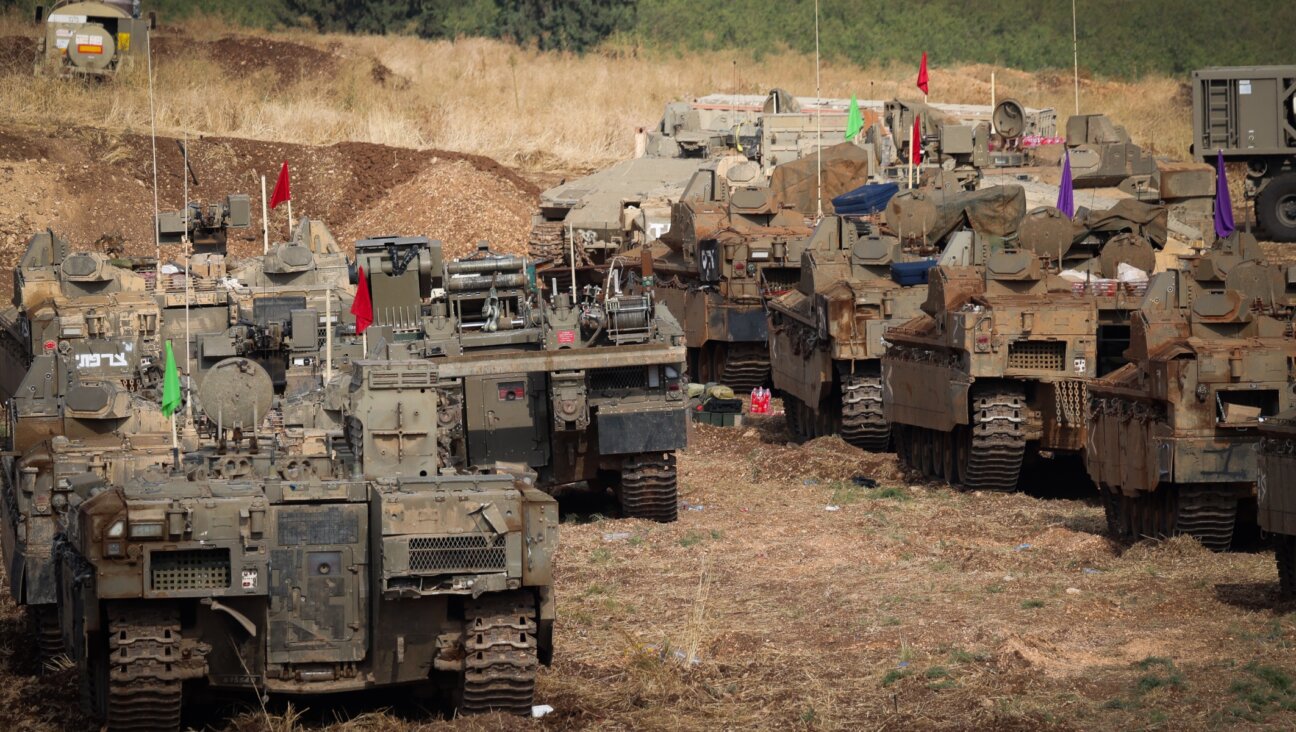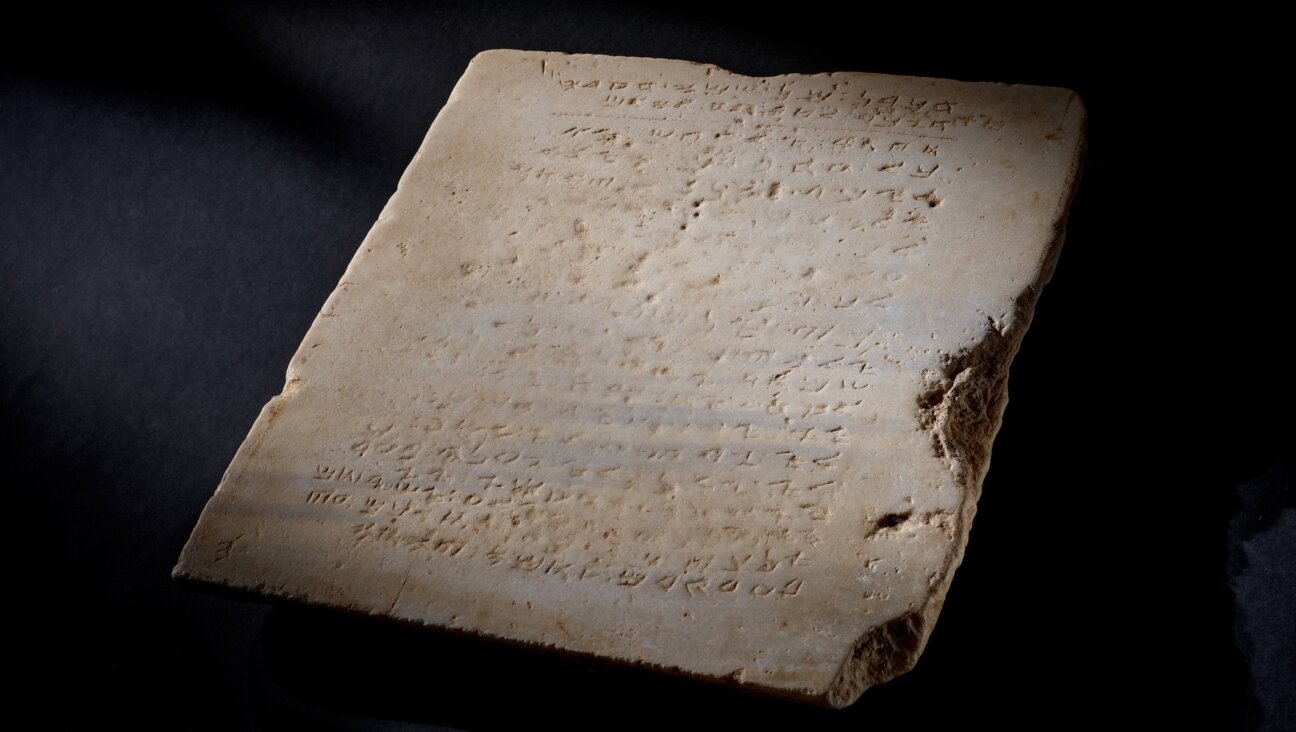Sderot Businesses Driven Out by Rockets
Haifa, Israel – The plight of the embattled residents of Sderot dominated Israel’s national agenda this week, as intensified rockets attacks on the Negev town from nearby Gaza drove protesters out onto the streets of Jerusalem and Tel Aviv to lambaste the government’s inability to quell the violence.
An estimated 250 angry Sderot residents stopped traffic in the capital Sunday after nearly 50 Qassam rockets fell during the weekend, including one that seriously wounded 8-year-old Osher Twito and his 19-year-old brother, Rami. Demanding Ehud Olmert’s resignation, the Sderot residents joined hundreds of local protesters at a tent outside the prime minister’s office, waving banners that declared, “No security, no shelters, no government.” Similar scenes played out in Tel Aviv on Monday.
In a bid to address the mounting frustration in Sderot, where rocket attacks have been commonplace for months, Defense Minister Ehud Barak and the military’s chief of staff made a solidarity visit Sunday to the Negev town. But despite assurances that the government is sympathetic to the residents’ outrage, Barak’s plea for patience in finding a solution to the attacks fell, for the most part, on deaf ears.
“We demand security from the state,” Batya Katar, a mother of two who co-organized the protest in Jerusalem, told the Forward. “My 13-year-old son is scared to go out. This is not life. We can’t go on living in a situation like this; nobody can.”
The anger in Sderot extends far beyond the military’s inability to defend the town against the short-range Qassam rockets. Residents complain of a widespread lack of bombproof shelters in residential buildings, noting that while there is sufficient space in communal shelters — the entrances to which are usually located in outdoor public spaces — there is often not enough time for residents to reach them before the rockets hit. By law, all new buildings in Israel must have a reinforced room for each dwelling, but Sderot has seen precious little construction in recent years, and the vast majority of homes in the town — according to Katar, as many as 95% of them — lack such shelters, and residents often spend attacks cowering under the table.
“I want the government to meet its duty and build proper shelters for us, but it refuses,” Sderot’s mayor, Eli Moyal, told the Forward.
Feeling unsafe in their own homes, many residents express a wish to relocate to elsewhere in the country. With the collapse of the town’s housing market, however, such an option is beyond the means of Larissa Cuzin and others like her.
“While I don’t want to go, the situation here makes life impossible, and I would like to get out,” Cuzin said, claiming that the apartment she bought a decade ago — which now bears damage from a Qassam rocket that landed nearby — is worth half of what it was five years ago. “Values are dropping, and nobody is buying anyway,” she said.
With a mortgage payment of roughly $700 due each month, Cuzin says she is in no financial position to take on the rent for a home in a safer area of the country. Those who had the means to do so already left last summer, reducing the town’s population of 22,000 by 10%, and Cuzin is not the only one to argue that the government ought to lend a helping hand so that those wishing to relocate can do so.
One of Sderot’s most renowned local businessmen, however, has run out of patience waiting for Jerusalem to rescue the town’s fortunes. Avi Barssessat, head of Hollandia International, which manufactures top-end mattresses at Sderot’s largest factory and exports them to the United States and Europe, has resolved to move his factory and relocate his staff to central Israel within six months.
He is trying to convince other firms to do the same, but as of yet, none has signed on to his plan.
“Given that industry is the oxygen here, if industry will fall down, the city will fall down,” Barssessat said.
Since 2001, when the rocket fire began, the number of factories in the Sderot area has dropped to 69 from 80. But were Barssessat’s company to move, its relocation would carry special significance for the town.
Besides employing 100 people, Hollandia is regarded as a symbol of hope for the future of Sderot. The company’s move into town 11 years ago was motivated in large part by an ideological desire to develop the Negev with jobs and prosperity.
“My father [Isaac, the company’s founder] and I are great Zionists,” Barssessat said. “We wanted to reclaim the desert and help an area which, at the time we arrived, was suffering great unemployment…. We wanted to develop Sderot — not like a high-tech factory that brings in people from Tel Aviv who leave at the end of the day, but by actually providing jobs and skills for the local community.”
A 40% drop in productivity since last May first led Barssessat to consider relocating. Then, last month, a direct strike by a Qassam rocket, which did not injure anyone but caused $190,000 worth of damage, firmed his resolve to leave.
A message from our CEO & publisher Rachel Fishman Feddersen

I hope you appreciated this article. Before you go, I’d like to ask you to please support the Forward’s award-winning, nonprofit journalism during this critical time.
We’ve set a goal to raise $260,000 by December 31. That’s an ambitious goal, but one that will give us the resources we need to invest in the high quality news, opinion, analysis and cultural coverage that isn’t available anywhere else.
If you feel inspired to make an impact, now is the time to give something back. Join us as a member at your most generous level.
— Rachel Fishman Feddersen, Publisher and CEO





















